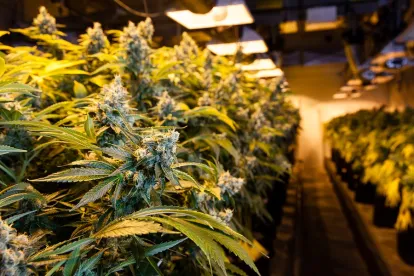On January 25, 2021, the NLRB Division of Advice (“the Division”) released a memo that may indicate a change in the way workers engaged in cannabis activities are covered under federal labor law. Under the NLRA, the right to form and join a union is limited to employees. Agricultural laborers do not have that right under federal law. Despite the fact that many workers in the cannabis industry are often involved in the cultivation and harvesting of a crop, they have typically been considered employees rather than agricultural laborers under the National Labor Relations Act (“NLRA” or “the Act”). This recently released advice memo (available here) reverses that interpretation.
Background
Agricultural laborers are exempt from the NLRA’s definition of “employee” and thus outside the Board’s jurisdiction. Since the 1940s, Congress has instructed that the NLRB use the expansive definition of “agriculture” supplied by the Fair Labor Standards Act (“FLSA”) in a rider attached to the Board’s funding for certain actions. The FLSA definition covers workers engaged in both “primary agriculture,” such as cultivation, growing, and harvesting of agricultural or horticultural products, and “secondary agriculture,” including work performed incident to or in conjunction with such farming operations, preparation for market, delivery to storage or to market or to carriers for transportation to market.
In two previously released advice memos (Wellness Connection of Maine (2013) and High Level Health (2015)) involving the cannabis industry, workers in the cannabis industry were considered employees rather than agricultural laborers due to the fact that their activities more closely resembled manufacturing than agriculture. Specifically, in Wellness Connection of Maine, the Board concluded that workers who process marijuana that has already been cultivated and harvested by other workers are not “agricultural laborers” and are “employees” under the Act. In High Level Health, the Division likewise concluded that “water techs” were employees and not excluded “agricultural laborers” because the rider’s text implicated only cases specifically involving bargaining units and the employees at issue were not engaged in any organizing activity.
Cannabis Industry Workers With No Involvement in Processing Considered Agricultural Laborers
In this memo, the Division advised that the charges against an employer be dismissed because the two workers in question were agricultural laborers and thus exempt from the Board’s jurisdiction under the NLRA.
At issue were a cultivation associate whose job responsibilities included harvesting, de-fanning, and skirting the plants, and a trimmer who cleaned, planted, harvested, packaged, and hand-sorted buds based on their salability. Importantly, neither worker used a machine to perform their tasks nor were they engaged in processing the plant into other retail products such as concentrates, ointments, or tablets. The workers charged that the statement of an agent of the employer constituted unlawful interference with their rights under the Act. The Division concluded both workers were agricultural laborers and therefore fell outside the protections of the Act since they were primarily engaged in cultivation, harvesting, and packaging. It also found that the workers did not do anything to significantly transform the natural product from its raw state. Although the Division recognized that the Board had previously held that greenhouse workers performing very similar functions to be employees under the Act, it found that the decision took place before Congress began attaching the previously mentioned rider in 1946.
In arriving at this conclusion, the Division distinguished, rather than reversed, its previous Advice Memoranda concerning cannabis workers. First, the Division reasoned that its 2013 memo holding that processing assistants in a marijuana cultivation facility were employees under the Act was factually distinct because the workers at issue in that case used machinery to further process byproducts of cannabis cultivation into salable products. Second, the Division distinguished its 2015 case involving water technicians, who performed similar work to the workers at issue here, since they determined that the definition of “agriculture” included in the rider was inapplicable because, unlike here, the employees were not engaged in organizing activities as required by the rider.
Key Takeaways
-
While this letter is a welcome sign for employers in the cannabis industry, the Board has not definitively held whether other workers in a cannabis enterprise who may have a greater role in transforming the natural product from its raw state are agricultural laborers or statutory employees. Further, decisions from the Division are not binding on the five-member NLRB. However, they typically impact regional officials’ decisions to issue unfair labor practice complaints in the absence of a definitive Board decision.
-
This Advice Memo was written before the Biden administration’s impact on the NLRB has been fully manifested. Since then, President Biden fired NLRB general counsel Peter Robb before his term was set to expire, and also fired Robb’s deputy General Counsel Alice B. Stock, after both refused to resign just hours into Biden’s presidency. Because it is anticipated that numerous decisions issued by the Trump-era Board will be on the chopping block once the new Administration is able to secure a majority on the Board, employers should be wary of relying too heavily on advice given under the previous administration due to President Biden’s pro-labor agenda.
-
Last, escaping coverage under the NLRA might not eliminate the potential for organizing at many cannabis producers. Several states where the production of cannabis is legal have passed laws requiring cannabis companies to sign so-called “labor peace agreements” with unions.” Additionally, certain states, including California and Massachusetts, protect the rights of agricultural workers to organize absent coverage under federal labor law.
Myles Moran contributed to this article.




 />i
/>i

